What inspired you to pursue a career in project management, and how has it shaped your professional journey?
In 2005, after completing my network engineering training at the United Kingdom Telecoms Academy, I returned to Nigeria and was invited to join the new management team at MTEL, where I had previously worked as a fresh graduate five years earlier. Initially, my focus was on telecom engineering, but my career took a different path when I joined the Project Implementation Unit within the GSM Operations Department. Despite my limited knowledge of project management at the time, I quickly embraced the field, pursuing formal training and certifications to enhance my expertise.
In 2006, my organization sent me to the United Arab Emirates for my first formal project management training, which was both eye-opening and inspiring. Eager to deepen my understanding, I self-funded additional training and certifications in the United Kingdom, where I earned my first project management certification. Upon my return to Nigeria, I became the only certified project practitioner within my organization, which gave me access to high-level decision-making discussions about key strategies and projects.
However, I observed that project management was often misunderstood as merely a job title rather than a full-fledged profession. This realization motivated me to take action, ultimately leading to the creation of Nigeria’s first national project management conference. So, I went from organizing the conference to setting up iCentra, a business and technology company. And adopting project management as one of our service pillars together with technology, training and consulting.
As a management consultant, I am very aware that strategies are deployed as initiatives and projects and project management expertise is needed to achieve strategic objectives. Having the expertise, not only at the individual level but also at the organizational level has helped a lot in my professional journey.
What do you consider to be your most significant project management achievement to date, and why?
I consider all our projects at iCentra significant, however setting up the enterprise project/programme management system for the Apex Bank in Nigeria is a very significant one because we assembled a team of seasoned project management professionals from across the world to deliver the most sophisticated solution for the financial regulator.
What leadership qualities do you believe are most important for successful project management in Africa?
Successful project management in Africa requires cultural sensitivity, resilience and visionary thinking to navigate the continent’s diverse and dynamic environments. Leaders must demonstrate strong communication, integrity, and problem-solving abilities while fostering collaboration and innovation. Emotional intelligence and adaptability are also key to managing teams effectively and ensuring long-term, sustainable success.
As the PMI Person of the Year, what is your vision for the future of project management in Africa?
As the PMI Person of the Year, my vision for the future of project management in Africa is one of transformation, innovation, and capacity building. I see a future where project management is recognized as a critical enabler for sustainable development across the continent, driving economic growth, infrastructure development and social progress. By investing in the education and certification of African project managers, leveraging technology, and fostering a culture of collaboration and accountability, we can create a new generation of leaders who will elevate Africa’s standing in the global economy and improve the quality of life for its people. It is in line with this that I announced the launch of the #Project1500—an initiative aimed at empowering 1500 young professionals, especially Africans with Project Management, Agile and Digital Transformation skills.
What role do you see project management playing in Africa’s development over the next decade?
Over the next decade, project management will play a pivotal role in driving Africa’s development by ensuring that critical initiatives are delivered with efficiency, accountability and sustainability. By embedding project management principles into Africa’s development frameworks, we can foster innovation, create job opportunities, and build resilient systems that can support the continent’s growing economies and populations. Project management will also be key in aligning Africa’s development goals with global sustainability efforts, ensuring a future that balances economic progress with social and environmental responsibility.
How do you think project management can help address pressing issues like infrastructure deficits, health systems, and education across the continent?
In line with PMI Africa’s theme of Africa on Purpose, project management serves as a catalyst to purposefully address the continent’s most pressing issues—such as infrastructure deficits, health systems, and education—by driving intentional, impactful, and sustainable solutions. With a clear focus on delivering value, project management ensures that infrastructure projects are purposefully executed to enhance connectivity, boost economic activities, and improve quality of life. In healthcare, project management can help implement systems and services that are responsive to the unique needs of African communities, ensuring access to essential care and sustainable growth. Similarly, in education, project management can facilitate targeted initiatives that expand access, improve learning outcomes, and build skills for future generations. By aligning projects with Africa’s development goals, project management can create a future where every project contributes to the continent’s intentional progress and long-term prosperity.
In what ways do you think project management practices in Africa differ from other parts of the world, and how can these be leveraged for unique success?
Project management practices in Africa differ from other parts of the world due to unique regional factors such as diverse cultural contexts, varying levels of infrastructure, and resource constraints.
In Africa, there is often a strong focus on adaptability and flexibility, as project managers frequently navigate unpredictable environments, evolving regulatory landscapes, and socioeconomic challenges. Additionally, community involvement and stakeholder engagement tend to play a more pronounced role, as local buy-in is crucial for the success of many projects.
These differences can be leveraged for unique success by capitalizing on Africa’s strength in fostering collaboration, innovative problem-solving, and resilience. By integrating agile and context-sensitive approaches, African project managers can lead projects that are highly responsive to local needs and challenges. Emphasizing culturally attuned leadership and relationship-building can also ensure greater project ownership and sustainability. By combining global best practices with these regional strengths, Africa has the potential to deliver transformative, home-grown solutions that are both scalable and impactful.
How do you integrate sustainability and social responsibility into the projects you manage?
We integrate sustainability and social responsibility into projects by embedding these goals in the planning phase and aligning with global frameworks like the UN SDGs. We ensure to engage stakeholders to address social needs, and ensure ethical decision-making. We also measure and report sustainability impacts in line with the project’s sustainability plan, and foster a culture of responsibility through team training and innovation. This approach ensures that projects contribute positively to both the environment and communities.
With the rapid rise of digital transformation, how do you see technology influencing project management in Africa?
Technology is fundamentally transforming project management globally not only in Africa, by enhancing communication and collaboration through digital platforms, enabling real-time monitoring and reporting via data analytics, and automating routine tasks to increase efficiency. Project management tools powered by AI and machine learning offer predictive insights, helping teams make informed decisions and manage risks more effectively. Overall, these advancements lead to greater agility, improved stakeholder engagement, and better alignment with strategic goals, resulting in higher project success rates.
What advice would you give to young Africans aspiring to excel in the field of project management?
My advice to young African professionals is to stay disciplined and committed to their profession, irrespective of the field of practice. It takes time to achieve mastery in any field and there are no shortcuts to experience. And most importantly, they should leverage the experience of mentors.
What keeps you motivated in your work, especially when managing complex projects with far-reaching impacts?
My motivation for all projects is the opportunity to transform organizations and people for excellent outcomes.
Seeing the tangible results of our work—such as increased efficiency, enhanced team collaboration, or improved customer satisfaction—fuels my passion. Additionally, I find great fulfillment in developing people; mentoring and empowering team members not only strengthens the project but also contributes to their personal and professional growth.
Ultimately, knowing that I can contribute to creating a positive legacy within an organization, while equipping individuals with skills and knowledge, keeps me engaged and motivated, even amidst the complexities and challenges of large-scale projects.
What habits or routines have helped you maintain a successful career in project management?
My habits are simple, time consciousness, discipline and life-long learning.
How do you maintain work-life balance while managing high-stakes projects?
I try to destress a lot through exercise, music and dance, and most importantly, creating time for family.
What legacy do you hope to leave behind as PMI Person of the Year, and what’s next for you in your career?
Irrespective of the award, my goal is to help as many young Africans and professionals across the globe to unlock their true possibilities and help create new opportunities for success.
______________________ Transformation expert, management and technology professional. I come with over two decades (20 years) of experience and expertise in strategy, Agile, digital and organizational transformation, project, programme and portfolio management, PMO delivery, technology consulting, information security, change management, learning and development. As a trusted executive advisor, with a unique ability to understand value creation at multi-levels, I have helped several organizations to achieve their strategic objectives. I have had the privilege of leading high-impact transformation projects and programmes, managing several multi-million-dollar portfolios, and delivering value across different sectors such as IT, Telecoms, Finance, Agric, Health, Education, Government, Development, SME etc. Beyond business, I have over the last decade built communities and co-founded social enterprises such as LeadPreneur - a platform dedicated to raising transformational leaders and entrepreneurs, and Pheek Foundation – an initiative that drives positive change through empowerment. I also serve on the board of several not-for-profit organizations such as Glovis Entrepreneurship & Leadership Development (GELD) and Triola Aina Foundation to mention a few. A member of the Forbes Business Council, a startup advisor and an angel investor, he is the first African to be named Global PMI Person of the Year. I'm a member of the Forbes Business Council, a startup advisor, and an angel investor. I'm also a published author, contributor at Forbes Magazine, and columnist at BusinessDay newspaper amongst others.






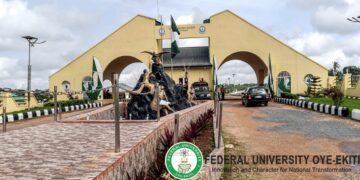






















































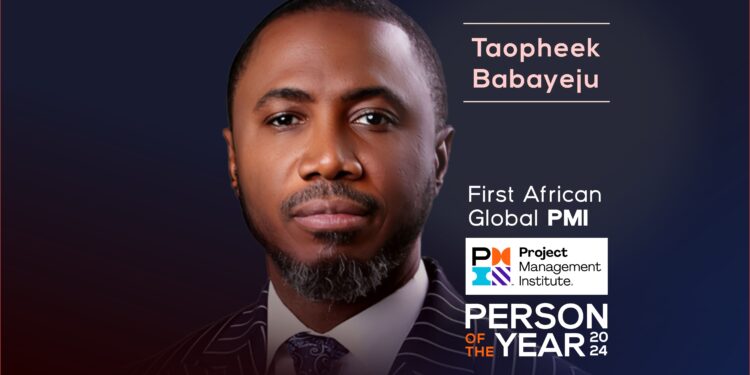





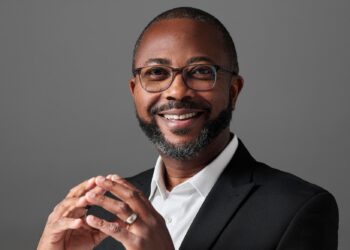
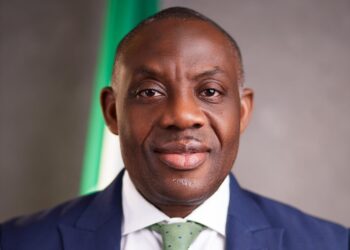
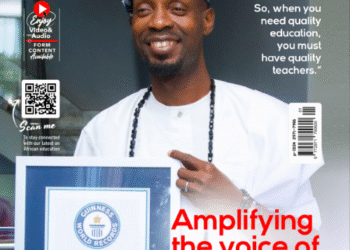

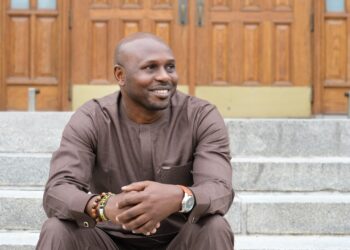










 EduTimes Africa, a product of Education Times Africa, is a magazine publication that aims to lend its support to close the yawning gap in Africa's educational development.
EduTimes Africa, a product of Education Times Africa, is a magazine publication that aims to lend its support to close the yawning gap in Africa's educational development.